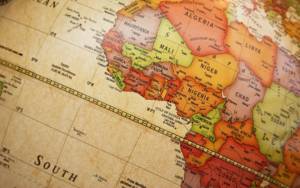
While African religions originating from West Africa don’t get a lot of press coverage, they’re critically important spiritual paths for many Canadians.
Around two-thirds of Canadians claim to be Christians, but our country’s religious landscape also contains many complexities and nuances. Our religious diversity in modern times has been forged from a fascinating and troubling history, a colonialist legacy with still lingering wounds, and new immigration changing our population’s makeup over the last several decades. While African religions originating from West Africa don’t get a lot of press coverage, they’re critically important spiritual paths in the lives of both newer arrivals and native-born black Canadians.
Roots in the Homeland
Before examining contemporary versions of the West African faiths practiced in Canada, one should understand the collection of civilizations from which these traditions sprang. Modern-day Nigeria, Benin, Togo, Ghana, and the Ivory Coast were home to several groups:
- Akan cultures like the Ashanti, Chakose, and Fanti
- Yorubaland peoples
- The Fon people of the Dahomey kingdom
- Gbe-speaking groups such as the Ewe
- The Kaybe
As Encyclopedia Britannica explains, members of these civilizations all speak languages from several branches of the Niger-Congo linguistic family. Not only that, they evidence a wide range of beliefs that differ slightly within each culture but share some major similarities:
- The universe’s creation as a product of divine action
- The importance of revering and connecting spiritually with one’s ancestors
- Pantheons of deities or spirits that each govern various aspects of existence
- A chief deity respected and revered by other supernatural beings
- The ability of mortals to supplicate and request divine intervention
Tragedy and Transformation in the Americas
Sadly, the transatlantic slave trade is primarily responsible for bringing West African religions to Canada. While no exact statistics are available, UNESCO estimates that 17 million people were stolen from the region and sold as slaves in the Americas between the 16th and 19th centuries. These individuals were shipped to several colonized areas in the Caribbean, South America, and the territories that eventually became the United States. Many European governments issued decrees and laws such as Frances “Code Noir” that prevented slaves from practicing their original religions and customs in these colonies.
Nevertheless, black people found resourceful ways to continue the faiths of their homelands. As they were forced to convert to Catholicism and other sects of Christianity, they syncretized their original West African beliefs with the new religion, producing several variants:
- Vodou in Haiti and Louisiana
- Brazilian Candomblé
- Las 21 Divisionesin the Dominican Republic
- Cuban Santeria and Lukumí faiths
- Akan-based Kumfu religion in Jamaica
West African Religions in Modern Times
The African diaspora in Canada is comprised of several populations that include a significant contingent of Caribbean origin, descendants of those who fled the United States, and immigrants directly from Africa. While many of these individuals are Christians, some observe the West African faiths they brought with them, deriving strength and pursuing deeper meanings through community support and private religious practice. At the same time, they also encounter harmful misconceptions about their belief systems. For instance, a 2014 Canadian Dimension article discussed the Canadian Museum of Civilization’s Vodou exhibit held that same year, revealing that the religion’s adherents fight racist stereotypes insisting that their cherished faith is “primitive devil worship.”
Looking to the Future
Followers of West African religions gain positive psychological and spiritual benefits while retaining connections with ancestral cultures, customs, and beliefs. Headlines south of the border reveal that some black individuals originally raised as Christians are ditching these faiths in favor of traditional African spiritual paths. Although it’s difficult to derive conclusions about future trends in Canada based on events occurring in the United States, it will be interesting to see if traditions such as Vodou, Lukumí, Candomblé or their original African versions gain new Canadian believers in the coming years.


